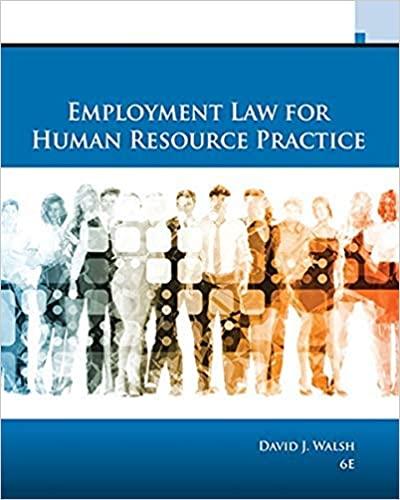Plaintiff filed suit under the Uniformed Services Employment and Reemployment Rights Act (USERRA), arguing that when he
Question:
Plaintiff filed suit under the Uniformed Services Employment and Reemployment Rights Act (USERRA), arguing that when he returned from service in the U.S. Air Force, FedEx improperly paid him a $7,400 bonus instead of the $17,700 bonus he would have earned had he not served. The Ninth Circuit affirmed the district court’s decision awarding plaintiff the higher signing b onus plus attorney’s fees. The district court properly used the reasonable certainty test to determine that plaintiff showed by a preponderance of the evidence that his military service was a “substantial or motivating factor” to cause an adverse employment action. The district court properly relied on the escalator principle, which provides that a returning service member should not be removed from the progress of his career trajectory. The district court did not clearly err in finding that plaintiff was reasonably certain to have achieved the higher bonus status had he not left for his military service. The district court correctly concluded that plaintiff’s bonus was, in part, a seniority-based benefit, and even if the signing bonus were not a seniority-based benefit, it still would not bar the plaintiff’s claim.
1. What was the legal issue in this case? What did the Appeals Court decide?
2. The plaintiff’s eligibility for reinstatement under USERRA was not contested, so it is not discussed in this decision. But, for the record, how were the eligibility criteria of USERRA satisfied in this case?
3. What is the “escalator principle”? What is the “reasonable certainty test”? How were these two concepts applied by the courts in this case?
4. What difference does it make whether the signing bonus in question was a “seniority-based benefit” or a “non-seniority-based benefit”? Why does the court conclude that it was the former?
5. What are some practical implications of this case? Why do you suppose that Fed Ex bothered to appeal the lower court’s decision? Would negotiating clearer contract language have avoided this problem in the first place?
Step by Step Answer:






